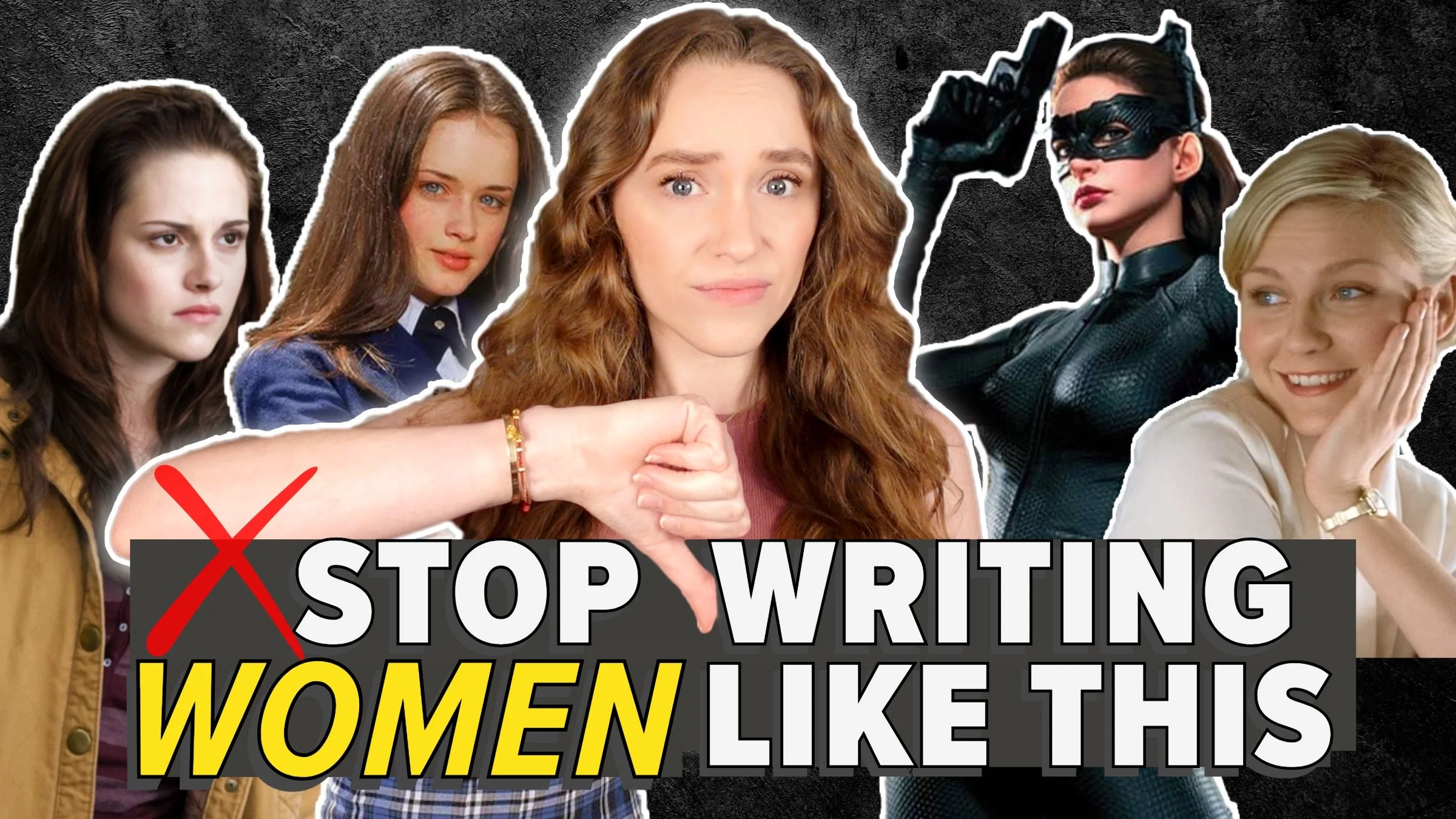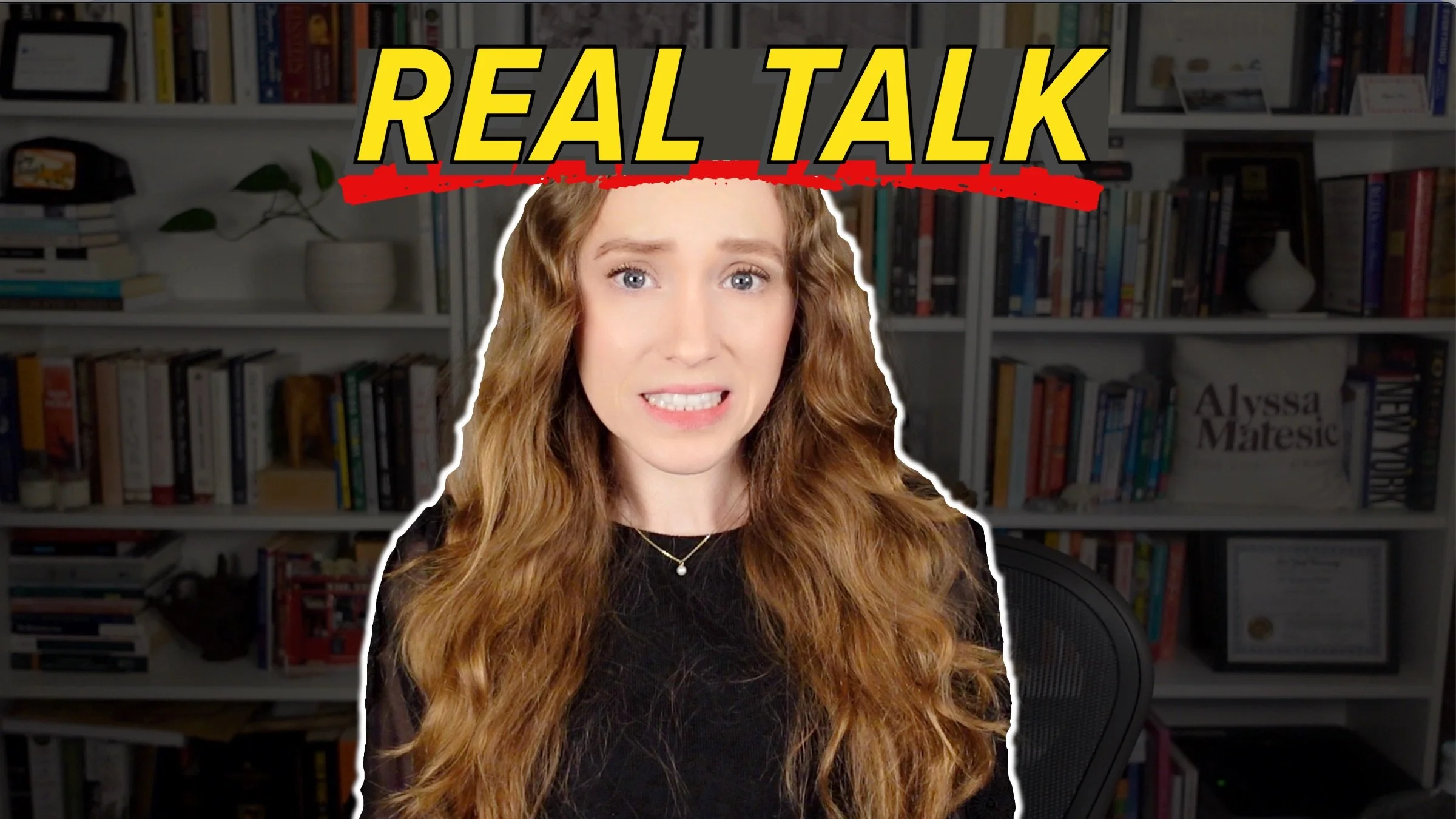Literary Agent Rejections Explained: Why Was Your Query Declined?
HIT PLAY OR READ THE POST BELOW:
Rejection hurts. There's no sugarcoating it. One of the biggest roadblocks to getting published is the dreaded literary agent rejection. But finding the right literary agent—and getting rejected by others along the way—is a part of the traditional book publishing process. So if you're wondering why a book agent may have rejected your book, you've come to the right place.
I've worked closely with several top-tier literary agents who are behind some of the industry's biggest book deals and numerous New York Times bestsellers. My key responsibility was to manage their submissions inbox and provide the first review of author queries. As you can imagine, their inbox was consistently flooded, sometimes reaching even a thousand unread submissions. I would read through each query and determine whether it was worth sending on to the agent or if it should be rejected.
Through reviewing hundreds of query letters and establishing relationships with agents, I've come to an understanding of what makes them accept or reject a book project. And I'll go ahead and reveal my first secret: it isn't all about the query letter. Though that is a key component, it's worth talking more about the agent and author relationship so you understand their perspective and point of view.
An analogy to use when thinking about finding a literary agent is that it’s like dating. The truth is, an agent usually isn't rejecting your book because they don't like you as a person or think you're a bad writer, so get that out of your head right now. Oftentimes there's nothing wrong with you or your project–you're just not the right match.
All too often I see writers give up on their publishing dreams because they are discouraged from being ghosted or rejected by agents, and I totally get it–writing is such a personal process that getting your book rejected can feel crushing.
But if your dream is to be traditionally published by a Big Five house, I encourage you to push through those rejections. The process of finding a literary agent could take years, but if being published is important to you, it's a journey you must be willing to take, and it will pay off.
Understanding some of the reasons why agents reject your manuscript will help you refine your approach to the querying process and ultimately help you see more successful responses.
So, let's dive into the top five reasons that your book got a literary agent rejection. First, a disclaimer: some of these will be things in your control and some of these things will be completely out of your control. I hope that helps you realize these rejections are not a reflection of the quality of your work but instead a reflection of the mismatch with the agent–and that's totally okay.
1. An Unprofessional Query Letter
The first reason is something that you do have complete control over and is easily fixed. Agents will automatically reject a query if it comes across as unprofessional or is incorrectly formatted.
While there is a general template that most queries should follow, each and every agent has their own specifications and instructions that they want you to follow so they can quickly sort through their submissions inbox.
For instance, they might request that you use a specific subject line for your query or that you include a specific number of sample pages. You need to follow these instructions to a T because if you don't, that signals to the agent you haven't read through the guidelines on their website and are just blast mailing your query to every agent in the books–and that’s not a professional look.
Something else you can do to ensure your query letter is in shape is to have a friend or a trusted editor read through and proofread your letter and make sure that the tone is professional. You don't want to sound boastful or egoistic, so refrain from suggesting things like your book is the next bestseller or that it's going to sell 50,000 copies. Be humble, be authentic, and be realistic. Don't feel the need to oversell yourself or your book.
2. Lack of Interest
The second reason you may have received a literary agent rejection is because the genre simply isn't in their area of interest. If you've been researching agents, you've likely realized that agents tend to have several specialties. While editors at publishing houses have more narrow specializations, agents have the freedom to work on whatever projects they enjoy. So this means you might find an agent who works on YA novels as well as adult romance.
The first thing you need to do before reaching out to an agent is ensure they list your genre as one of their areas of interest. But even if they have your genre listed, that doesn't mean they're looking to take on more books in that genre at this moment. For example, it could be that they have just signed several YA clients and they're looking to build their adult romance list instead.
These are things you may not know going into the querying process. One tip to prevent querying an uninterested agent is to check the agent's Twitter feed to see if they've listed any specific manuscript wishlist (#MSWL) requests recently.
Simply realizing that agents tend to be looking for different types of projects at different times because of the clients they're currently working on, publishers’ requests, and trends in the publishing industry can make that rejection sting less.
3. Underwhelming Plot Blurb
The third reason an agent might reject your book is because the plot blurb is uninteresting or underwhelming. When I work with clients on query letters, I spend the most time adjusting the blurb, because it is the first impression of your book that you're giving to the agent.
It's important to note that the plot blurb should sound more like the copy on a book jacket rather than an all-encompassing summary of your book. Oftentimes I see writers outlining every part of their book—even giving away the ending of a novel—but that is a big no-no. The blurb needs to be, above all else, intriguing. The goal is to pique the agent's interest so they feel compelled to read the sample pages.
It's critical that you outline your book's main hook by giving a hint of what the main point of tension or conflict is. One tip is to write out some rhetorical questions that your book explores and that highlight the key point of suspense. For example, you could say something like, “Will Jon be able to find the killer or will he discover the killer has been with him all along?”
Of course, you can remove these questions if they sound too cheesy or don't flow well, but by writing them down, you can get your wheels turning on what your book's intriguing angle is.
Additionally, your blurb needs to sound differentiated from other books in the genre. The agent needs to immediately understand what makes your book unique. For example, your book could have a really unique setting or it could feature a character with a really compelling backstory. Be sure to highlight that key differentiating factor in your plot blurb and you'll be in good shape to pique the agent's interest.
4. A Rough Manuscript
The next reason agents may reject your book is if your writing isn't polished or up to par. For a writer to be considered by an agent and ultimately by a publisher, they must be able to write extremely well. I'm not just talking about grammar and spelling here—though these are important, and a large amount of errors can signal to an agent that you're not ready to be published.
I'm talking about your skill with world building, crafting authentic characters, establishing tension, and maintaining a steady pace. Your prose has to come off as thoughtfully crafted and intentional. Luckily, there are many avenues you can explore if you're looking to strengthen your writing. One great option is to sign up for a creative writing course or join a more informal writer's group where you workshop one other's pages. Having another person read and critique your work is absolutely critical to identifying your personal writing pitfalls.
If you're looking to take the next step with a professional review of your novel, work with a book editor who specializes in your genre and knows what it takes to get a book accepted by an agent or a publisher. They will help you identify problem areas within your manuscript, and your editor will also be able to offer editorial feedback regarding your personal writing tics, such as if you overuse a specific phrase or if you format dialogue incorrectly.
Ultimately, I do not recommend sending any queries to agents if you haven't had anyone read and critique your novel in its entirety. It is so critical to get that third party feedback to uncover issues you may not be able to see in your own work, and listening to outside feedback will only strengthen your manuscript.
5. Uninteresting Sample Pages
The final reason you may have received a literary agent rejection is also probably the most common reason: they're just not hooked by your sample pages. That is why it’s absolutely critical to nail the first 10 pages or first chapter of your book.
Oftentimes I hear writers saying things like, “The story really gets going halfway through,” or, “The best chapter comes later on.” If you find yourself saying these things, it's time to take a hard look at your first pages. Ideally, they should be the most intriguing, polished, and exciting pages of the entire novel, because these are the pages that determine if an agent, an editor at a publishing house, or a reader who's perusing your book is going to keep reading.
That makes it critical to look at them with a close lens. If your beta readers or your editor are giving you constructive feedback on your opening pages, listen to them very carefully. There are a lot of pitfalls I see writers fall into when it comes to the beginning of their manuscripts, like introducing too many characters at once or not providing enough details regarding the setting.
After reading your sample pages, the agent should be on the edge of their seat eager to devour the rest of the book. So, if your pages aren't doing that for them, it's likely that they're going to reject it.
My last point here is that it is possible one agent will find your sample pages intriguing and another may not. It also comes down to personal taste. But, if you're getting feedback from multiple people that those opening pages are not enticing enough, or if you have a personal sneaking suspicion that they aren't as strong as they can be, you should revisit them.
I hope these insights help you better understand why agents rejected your book and give you a fuller picture on how agents approach the query review process. Remember, querying is a marathon, not a sprint. It'll take time, but it'll be worth it in the end to find the right match. Until then, don’t let a literary agent rejection get you down.
Thanks so much for reading and happy querying!






